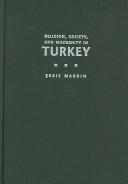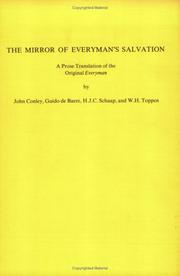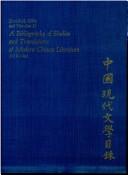| Listing 1 - 10 of 81 | << page >> |
Sort by
|
Book
ISBN: 1775563022 Year: 2008 Publisher: Waiheke Island : The Floating Press,
Abstract | Keywords | Export | Availability | Bookmark
 Loading...
Loading...Choose an application
- Reference Manager
- EndNote
- RefWorks (Direct export to RefWorks)
Aesop was an Ancient Greek story-teller and slave, famed and cherished for his short fables that often involve personified animals. In the renowned collection of works that is Aesop's Fables , he weaves moral education and entertainment together into tales that have been enjoyed by many, many generations. A lot of the stories in Aesop's Fables, such as The Fox and the Grapes (giving us the term ""sour grapes""), The Tortoise and the Hare ...

ISBN: 0815628161 9780815628163 0815627866 9780815627869 0815627874 9780815627876 Year: 1999 Publisher: Syracuse, NY Syracuse University Press
Abstract | Keywords | Export | Availability | Bookmark
 Loading...
Loading...Choose an application
- Reference Manager
- EndNote
- RefWorks (Direct export to RefWorks)
An anthology of five Yiddish plays in translation-all written by well-known playwrights in the first quarter of the twentieth century- God, Man, and Devil also includes two independent scenes, which in Nahma Sandrow's words, "show off the raucous characteristic of Yiddish theater, especially in popular performance."The settings of the plays range widely-a luxurious parlor, a haunted graveyard, a farmyard, a sweatshop on strike, a subway, and the boardwalk of Atlantic City. They are both comic and mournful, and reflect expressionism, satire, fantasy, farce, suspense, and romance. But all consider the same question: what makes life morally good and worth living?Before the modern Yiddish secular culture evolved as we know it today, Yiddish plays were being written for about a century. As Yiddish-speaking communities flourished, so did their love for theater. "Yiddish playwrights shared their experiences and made them art." Edited to make them more accessible for both reading and performance, each play is accompanied by an introduction, which provides historical context, production histories, and elucidation of references.
Yiddish drama --- Yiddish literature --- Translations into English.
Book
ISBN: 0191084247 Year: 2016 Publisher: Oxford, England : Oxford University Press,
Abstract | Keywords | Export | Availability | Bookmark
 Loading...
Loading...Choose an application
- Reference Manager
- EndNote
- RefWorks (Direct export to RefWorks)
Proverbs --- Proverbs, English --- Translations into English
Book
ISBN: 8382005780 Year: 2019 Publisher: Warszawa : Ktoczyta.pl,
Abstract | Keywords | Export | Availability | Bookmark
 Loading...
Loading...Choose an application
- Reference Manager
- EndNote
- RefWorks (Direct export to RefWorks)

ISBN: 9789004483330 9789062038657 9004483330 Year: 1985 Publisher: Leiden; Boston : BRILL,
Abstract | Keywords | Export | Availability | Bookmark
 Loading...
Loading...Choose an application
- Reference Manager
- EndNote
- RefWorks (Direct export to RefWorks)
Christian ethics --- Moralities, Dutch --- Drama --- Translations into English --- Drama. --- Translations into English.
Book
Abstract | Keywords | Export | Availability | Bookmark
 Loading...
Loading...Choose an application
- Reference Manager
- EndNote
- RefWorks (Direct export to RefWorks)

ISBN: 0674071115 168417192X Year: 1975 Publisher: Boston : Leiden; Boston : Harvard University Asia Center, BRILL,
Abstract | Keywords | Export | Availability | Bookmark
 Loading...
Loading...Choose an application
- Reference Manager
- EndNote
- RefWorks (Direct export to RefWorks)
Chinese literature --- Translations into English --- Bibliography --- History and criticism --- Bibliography.
Book
ISBN: 0525506039 Year: 2021 Publisher: New York : Penguin Publishing Group,
Abstract | Keywords | Export | Availability | Bookmark
 Loading...
Loading...Choose an application
- Reference Manager
- EndNote
- RefWorks (Direct export to RefWorks)
"Published in English for the first time, and the only Arabic epic named for a woman, The Tale of Princess Fatima recounts the thrilling adventures of a legendary medieval warrior universally known throughout the Middle East and long overdue to join world literature's pantheon of female heroes. A Penguin Classic A fearsome, sword-slinging heroine who defeated countless men in stealth attacks on horseback, Dhat al-Himma, or Princess Fatima, was secretly given away at birth because she wasn't male, only to triumph as the most formidable warrior of her time. Known alternately as "she-wolf," "woman of high resolve," and "calamity of the soul," she lives on in this rousing narrative of female empowerment, in which she leads armies of more than seventy thousand men in clashes between rival tribes and between Muslims and Christians; reconciles with her father after taking him prisoner; and fends off her infatuated cousin, who challenges her to a battle for the right to marry her. Though he suffers an ignominious defeat, he impregnates Fatima against her will and, when she gives birth to a Black son, disowns his own son, who also grows up to be a great warrior, eventually avenging his mother's honor. The epic culminates in a showdown between Fatima and another formidable woman warrior, and earns Fatima a place alongside the likes of Circe, Mulan, Wonder Woman, Katniss Everdeen and other powerful women"--
Epic poetry, Arabic --- Women heroes --- Translations into English.
Book
ISBN: 177651369X Year: 2010 Publisher: Auckland : The Floating Press,
Abstract | Keywords | Export | Availability | Bookmark
 Loading...
Loading...Choose an application
- Reference Manager
- EndNote
- RefWorks (Direct export to RefWorks)
The title novella in this collection of stories from literary master Leo Tolstoy, The Kreutzer Sonata, unleashed a firestorm of controversy upon its original publication. The story seeks to unpack the complex relationship between sex and love, and in it, Tolstoy makes a number of arguments about intimacy that were considered shocking in the context of nineteenth-century morals and mores. This collection is a wonderful introduction to Tolstoy''s work for new readers...
Book
ISBN: 030015741X Year: 1991 Publisher: New Haven ; London : Yale University Press,
Abstract | Keywords | Export | Availability | Bookmark
 Loading...
Loading...Choose an application
- Reference Manager
- EndNote
- RefWorks (Direct export to RefWorks)
Freemasons, Odd Fellows, Knights of Pythias—why did millions of nineteenth-century American men belong to these and other secret orders? In this engrossing study, Mark C. Carnes argues that fraternal rituals created a fantasy world antithetical to prevailing religious practices, gender roles, and institutional structures, offering a male religious counterculture that opposed an increasingly liberal and feminized Protestantism. "[An] original and compelling study. . . . Making use of anthropology as well as social history, Carnes is probably the first outsider to take these rituals seriously. . . . Playing the role of a graceful, controlling . . . guide into these mysteries, Carnes slowly unveils his thesis, which itself has several layers of mystery."—David Leverentz, New England Quarterly "An imaginative fusion of social and intellectual history. . . . Carnes’s work shows the true depth of nineteenth-century male sexual anxiety and hostility toward women. In this compelling book, Carnes opens new approaches to the study of gender and helps us better understand the reorientation of American culture at the turn of the century." —Donald Yacovone, Journal of American History"This is an important monograph in the field of men’s history. . . . This is ambitious conceptualization—the book is a refreshingly bold statement. . . . I find most of its conclusions accurate."—Peter N. Stearns, Journal of Ritual Studies"The breadth and thoroughness of this book is impressive. Carnes draws on the literature of the time, religious history and theology, child rearing and developmental psychology, women's history and gender studies, and structural and cultural anthropology."—Rosamund Orde-Powlett, Literary Review
Secret societies --- Initiations (into trades, societies, etc.) --- Men --- History. --- Attitudes.
| Listing 1 - 10 of 81 | << page >> |
Sort by
|

 Search
Search Feedback
Feedback About UniCat
About UniCat  Help
Help News
News